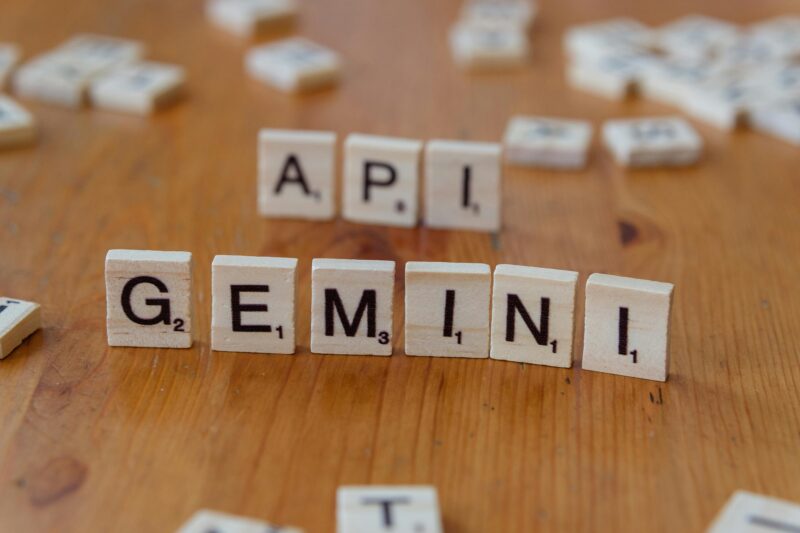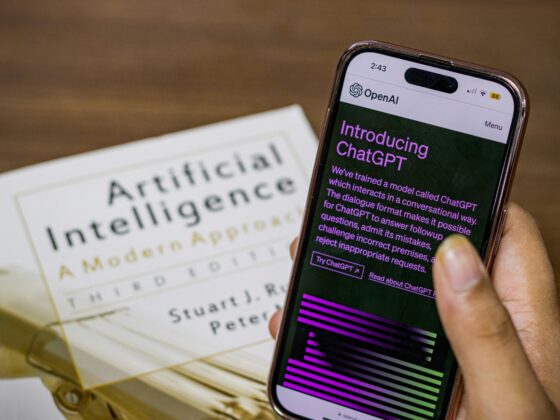Google Gemini 2.0 AI Update: How This Changes Search Forever
The Google Gemini 2.0 AI update has arrived, and it’s poised to reshape how we search, create content, and interact with information online. This Google Gemini 2.0 AI update represents a quantum leap in artificial intelligence capabilities, bringing multimodal reasoning, enhanced speed, and unprecedented understanding to Google’s ecosystem. For marketers, SEO professionals, and content creators, understanding the Google Gemini 2.0 AI update isn’t optional—it’s essential for survival in an AI-first digital landscape.
What is Gemini 2.0?
Gemini 2.0 is Google’s next-generation AI model, designed to power everything from search results to Google Workspace tools. Unlike its predecessor, this iteration was built from the ground up as a truly multimodal system, meaning it can seamlessly process and understand text, images, video, audio, and code simultaneously.
At its core, Gemini 2.0 represents Google’s answer to the rapidly evolving AI arms race. The model features native tool integration, allowing it to perform actions like executing code, searching the web in real-time, and even controlling other applications—all while maintaining conversation context. This isn’t just an incremental improvement; it’s a fundamental reimagining of what AI assistants can accomplish.
The rollout includes several specialized versions:
- Gemini 2.0 Flash: An ultra-fast experimental model optimized for everyday tasks
- Gemini 2.0 Pro: The flagship model with maximum reasoning capabilities
- Deep Research mode: A specialized agent that can conduct multi-step research autonomously
Key Differences from Gemini 1.5
The evolution from Gemini 1.5 to 2.0 isn’t just about raw performance metrics—though those are impressive. Here’s what fundamentally changed:
Speed and Efficiency: Gemini 2.0 Flash processes information twice as fast as its predecessor while using fewer computational resources. For users, this means near-instantaneous responses even for complex queries.
Multimodal Native Processing: While Gemini 1.5 could handle multiple input types, Gemini 2.0 understands them contextually together. Show it a restaurant photo, ask about the menu in Japanese, and inquire about nearby parking—it processes all these elements holistically rather than sequentially.
Agentic Capabilities: This is the game-changer. Gemini 2.0 can plan multi-step tasks, use tools autonomously, and maintain goal-oriented behavior across extended interactions. Ask it to “research emerging SEO trends and create a presentation,” and it can break that down into subtasks, execute them, and synthesize results without constant hand-holding.
Enhanced Reasoning: The model demonstrates significantly improved logical deduction and problem-solving abilities. It can catch its own errors, question assumptions, and provide more nuanced responses to ambiguous queries.
Longer Context Windows: With support for up to 1 million tokens in certain versions, Gemini 2.0 can process entire codebases, lengthy documents, or hours of video content in a single interaction.
How It Changes Google Search Results
The integration of Gemini 2.0 into Google Search fundamentally alters the search experience—and what it means to rank well. Here’s what’s shifting beneath the surface:
AI Overviews Get Smarter: Google’s AI-generated summaries at the top of search results now draw from deeper understanding and can synthesize information across more sources. They’re better at distinguishing between authoritative content and superficial coverage, meaning thin content will struggle even more to gain visibility.
Conversational Search Evolution: Search queries are becoming multi-turn conversations. Gemini 2.0 remembers context across searches within a session, meaning users can refine queries naturally: “restaurants in Brooklyn” → “which ones are open now?” → “show me reviews for the Italian one.” This changes keyword research fundamentally.
Visual and Video Search Dominance: With enhanced multimodal understanding, Gemini 2.0 can analyze images and videos at unprecedented depth. A search for “how to fix a leaky faucet” might prioritize video content not just by metadata, but by actually understanding the actions shown in the video.
Entity Understanding: The model’s grasp of entities—people, places, concepts—and their relationships has deepened dramatically. This means topical authority matters more than ever. Websites that establish clear expertise in specific domains will see preferential treatment.
Real-Time Information Synthesis: Gemini 2.0 can pull live information and synthesize it with historical context. Breaking news, trending topics, and time-sensitive queries now get responses that blend real-time data with authoritative background information.
What It Means for SEO & Content Creators
If you’re creating content for the web, Gemini 2.0 demands a strategic shift. Here’s what needs to change:
Death of Surface-Level Content: AI can now easily distinguish between content that provides genuine value and content optimized purely for keywords. Superficial blog posts that simply restate common knowledge will disappear from results. Deep expertise, original research, and unique perspectives become non-negotiable.
E-E-A-T on Steroids: Google’s emphasis on Experience, Expertise, Authoritativeness, and Trust intensifies. Gemini 2.0 can better evaluate author credentials, cross-reference claims, and assess whether content demonstrates real-world experience. Author bios, citations, and transparent sourcing matter exponentially more.
Multimodal Content is Essential: Text-only content increasingly falls short. The most successful content will combine written explanation with supporting images, embedded videos, infographics, and interactive elements. Gemini 2.0 evaluates the quality of these multimedia elements, not just their presence.
Structured Data Becomes Critical: With Gemini 2.0’s enhanced ability to understand structured information, proper schema markup isn’t optional—it’s the difference between being understood correctly or ignored entirely. FAQ schema, How-To schema, Product schema, and Review schema directly feed the AI’s understanding.
User Intent Must Be Comprehensive: Single-intent content won’t cut it. Users asking “best project management software” want comparisons, pricing, features, use cases, and integration capabilities—all in one place. Gemini 2.0 favors comprehensive resources over fragmented answers.
Conversational Optimization: Traditional keyword targeting evolves into conversation flow optimization. Structure content to answer follow-up questions naturally. Use headings that mirror how people actually speak and ask questions.
Original Data and Research: Content featuring proprietary data, original surveys, case studies, or unique analysis will dominate. Gemini 2.0 recognizes and rewards truly original information that doesn’t exist elsewhere.
Should Marketers Adapt Now?
The answer is an unequivocal yes—but with strategic focus rather than panic.
Immediate Actions to Take:
- Audit for Thin Content: Identify and either dramatically enhance or remove superficial pages that provide minimal value. Consolidate similar content into comprehensive resources.
- Implement Structured Data: If you haven’t already, add FAQ, How-To, Article, and relevant business schema to your key pages. Use Google’s Rich Results Test to validate.
- Enhance Multimedia Elements: Add explanatory images, embed relevant videos, create infographics. Ensure all visual content has descriptive alt text and captions.
- Build Topical Authority: Create content clusters around your core topics. Link related content strategically to establish clear topical relationships.
- Optimize for Conversations: Rewrite key pages to flow more naturally. Use conversational language in headings. Add sections that answer obvious follow-up questions.
Medium-Term Strategy Shifts:
- Invest in Original Research: Conduct surveys, compile industry data, publish original findings. This creates link-worthy, citation-worthy content that AI models recognize as authoritative.
- Build Author Credibility: Develop detailed author profiles. Secure guest posts and mentions on authoritative sites. Build verifiable expertise signals.
- Focus on User Experience: Page speed, mobile optimization, intuitive navigation—these aren’t just ranking factors; they’re signals of quality that Gemini 2.0 evaluates indirectly through user engagement metrics.
- Create Deeper Resources: Transform multiple shallow posts into fewer, more comprehensive guides. A single 5,000-word ultimate guide often outperforms five 1,000-word surface-level posts.
What Not to Do:
Don’t abandon SEO fundamentals. Gemini 2.0 doesn’t make keywords irrelevant—it makes keyword stuffing fatal. Don’t chase AI-generated content volume; quality over quantity matters more than ever. Don’t ignore traditional link building; authoritative backlinks still signal trust and expertise.
The marketers who will thrive in the Gemini 2.0 era are those who view AI not as a threat but as a catalyst for creating genuinely better content. The bar has risen dramatically, but so has the opportunity to differentiate through quality, expertise, and authentic value.
Frequently Asked Questions
What is Gemini 2.0?
Gemini 2.0 is Google’s next-generation artificial intelligence model featuring advanced multimodal capabilities, enhanced reasoning, and agentic functionality. It powers Google Search, AI Overviews, and various Google products, processing text, images, video, and code simultaneously with unprecedented accuracy and speed.
When will Gemini 2.0 be available in Canada?
Gemini 2.0 features are rolling out globally, including in Canada. The experimental Gemini 2.0 Flash model is available now through Google AI Studio and to Gemini Advanced subscribers. Full integration into all Google Search results happens gradually over several months as the model undergoes real-world testing and refinement.
How does Gemini 2.0 affect my website’s SEO?
Gemini 2.0 elevates content quality standards significantly. Websites with thin, superficial content will see reduced visibility, while sites offering genuine expertise, comprehensive information, and original insights will benefit. The model better understands context, user intent, and content quality, making traditional keyword manipulation ineffective.
Is Gemini 2.0 better than ChatGPT?
Gemini 2.0 and ChatGPT excel in different areas. Gemini 2.0 integrates deeply with Google’s ecosystem, offers superior real-time information access through Google Search integration, and features stronger multimodal capabilities. ChatGPT (particularly GPT-4) maintains advantages in certain reasoning tasks and has more extensive third-party integrations. The “better” choice depends on specific use cases.
Do I need to rewrite all my content for Gemini 2.0?
Not necessarily. Focus first on your highest-traffic pages and most important content. Prioritize adding depth, original insights, structured data, and multimedia elements to pages targeting competitive keywords. Low-performing content that’s genuinely thin should be improved, consolidated, or removed. Quality content that’s well-structured and informative may need only minor enhancements.
The Gemini 2.0 era rewards creators who prioritize depth over breadth, expertise over volume, and genuine value over algorithmic manipulation. The question isn’t whether to adapt—it’s how quickly you can elevate your content to meet these new standards.




